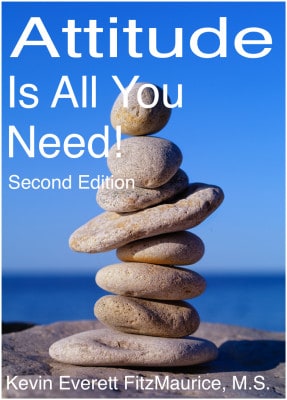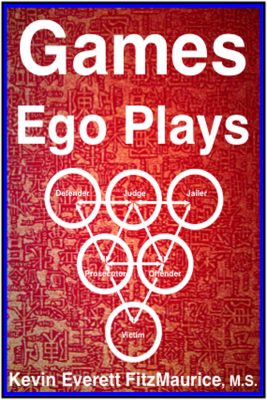Become Aware of How You Relate
- Garden will teach you an easy and effective Cognitive Behavioral Therapy (CBT & REBT) system.
- Read and discover the best system for improving your attitudes and experiences.
4 QUESTIONS
These four questions are about the 23 ways listed after the questions.
- Which of the ways of responding to your experience is your most common way?
- How does that way work for you?
- Would it be better for your life to use some or one of the other ways?
- Which ones and “why?”
- Read and discover the best system for improving your attitudes and experiences.
23 WAYS TO RELATE TO EXPERIENCE
- accepter
- apologizer
- arguer
- attacker
- changer
- complainer
- coper
- defender
- fighter
- jailer
- judge
- justifier
- learner
- master
- offender
- persecutor
- problem-solver
- prosecutor
- rationalizer
- resistor
- slave
- victim
- whiner
- Read and discover the best system for improving your attitudes and experiences.
Quotations from Various Sources
Listed Alphabetically
“A fool is only a fool because he won’t see he is a fool.” —Kevin Everett FitzMaurice
“A man of genius makes no mistakes. His errors are volitional and are the portals of discovery.” —James Joyce
“But if ye be without chastisement, whereof all are partakers, then are ye bastards, and not sons.” —Hebrews 12:8
“By honestly acknowledging your past errors, but never damning yourself for them, you can learn to use your past for your own future benefit.” —Albert Ellis and Robert A. Harper, A Guide to Rational Living, Third Edition, p. 194
“Correction is grievous unto him that forsaketh the way: and he that hateth reproof shall die.” —Proverbs 15:5
“Failure doesn’t have anything to do with your intrinsic value as a person.” —Albert Ellis and Robert A. Harper, A Guide to Rational Living, Third Edition, p. 206
“For whom the Lord loveth he chasteneth, and scourgeth every son whom he receiveth.” —Hebrews 12:6
“If we eliminated all errors, we would also eliminate much discovery, art, insight, learning, and creativity that results from facing errors.” —Kevin Everett FitzMaurice
“If ye endure chastening, God dealeth with you as with sons; for what son is he whom the father chasteneth not?” —Hebrews 12:7
“My son, despise not the chastening of the LORD; neither be weary of his correction:” —Proverbs 3:11
“The great man is he who does not lose his child-heart.” —Mencius
“The greatest explorer on this earth never takes voyages as long as those of the man who descends to the depth of his heart.” —Julien Green
“The trouble with most of us is that we would rather be ruined by praise than saved by criticism.” —Norman Vincent Peale
“When receiving correction, the wise seeks to learn, and the fool seeks to justify with excuses.” —Kevin Everett FitzMaurice
- Read and discover the best system for improving your attitudes and experiences.
Related Pages of Free Information
- 7 Questions to Ask Yourself
- CBT, CT, & REBT Cognitive Psychotherapies: List Pages
- Coping Skills: Free Help
- Counseling Issues: Free Help
- Ego & Self-Esteem Fast-Facts
- Emotional Responsibility: List Pages
- Exercises & Techniques: List Pages
- Feeling & Coping: Fast-Facts
- Motivating Questions
- Questions to Ask Yourself
- REBT (Rational Emotive Behavior Therapy): List Pages
- Self-Esteem Issues: List Pages
- Unconditional Self-Esteem (USE): Defined
- Read and discover the best diagrams and maps of how people play games with your mind and heart.
- Read and master the life skill of acceptance using the best combination of CBT, REBT, & Stoicism.
- Read and discover the best system for improving your attitudes and experiences.
6 Groups of Topics Menu
- 1. Pages by Topic
- 2. Fast-Facts by Topic
- 3. Quotations by Topic
- 4. Poems by Topic
- 5. Scripture by Topic
- 6. Websites by Topic
- Read and master the life skill of acceptance using the best combination of CBT, REBT, & Stoicism.
- Read and discover the best system for improving your attitudes and experiences.
9 Skills & Topics Menu
- 1. Anger Skills & Topics
- 2. Blame Skills & Topics
- 3. Communication Skills & Topics
- 4. Coping Skills & Topics
- 5. Counseling Skills & Topics
- 6. Praying Skills & Topics
- 7. Recovery Skills & Topics
- 8. Responsibility Skills & Topics
- 9. Thinking Skills & Topics
- Read and master the life skill of acceptance using the best combination of CBT, REBT, & Stoicism.
- Read and discover the best system for improving your attitudes and experiences.



